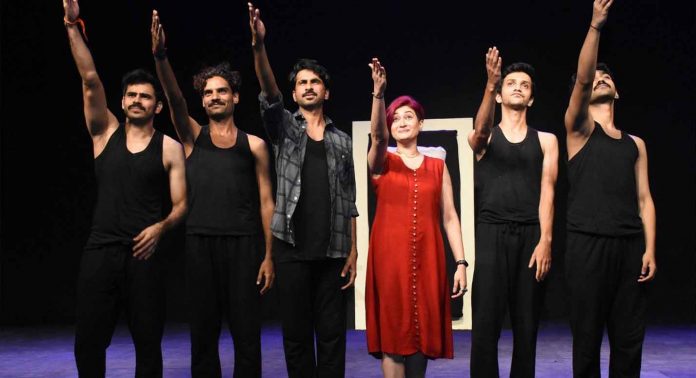In Karachi, at the Pakistan Theater Festival, people are still thinking deeply about the plays they’ve seen. Both Nocturnal and Art Aur Aata, two extraordinary stage works, captivated and inspired festivalgoers on the twentieth and twenty-first days of the event.
Those who attended Nocturnal, a show that focused on the current socio-political scenario in Pakistan, on the festival’s twentieth day were not disappointed. This bilingual drama by Bazelah Mustafa, who also directed it, was performed in both Urdu and English.
Ali Sher, Ashmal Lalwany, Ram Govind, Yogeshwar Karrera, and Faizan Younis were all fantastic in their roles in Nocturnal. The artists expertly portrayed several facets of Pakistani society through the technique of movement theater, illuminating the ways in which political parties, the media, and rulers abuse the people. The play was well-received by the audience, and many viewers singled out specific cast members for their dynamic and forceful portrayals. Insightful criticism of Pakistan’s complex political and media landscape was provided by Nocturnal.
The 21st day of the festival featured another piece of powerful theater by Grips Theater Group called Art Aur Aata. Faiza Qazi, Khalid Anam, Ameed Riaz, Khalifa Sajeeruddin, and Ayesha Shaikh were among the stellar cast of the Urdu/English drama by Imran Aslam.
The author, Imran Aslam, was recognized onstage for his many accomplishments in the theater industry. President of the Arts Muhammad Ahmad Shah stated in his opening remarks that the festival’s intention was to honor greats in the theater industry such as Kamal Ahmad Rizvi, Imran Aslam, William Shakespeare, and others.
Shah praised Aslam’s approach to mentoring and teaching, noting how he generously shared his knowledge with students of all ages. He stressed that Aslam’s influence was not limited to youngsters because of his capacity to teach people from all walks of life.
Khaled Anam, a veteran actor who was also in the group, expressed gratitude to the president for giving them the chance to perform. He praised Art Aur Aata as an important political satire that boldly takes on the problems plaguing modern Pakistani society and the influential people behind it. The production skillfully combined comedic elements with critical criticism, leaving viewers with a good time and prompting serious thought about important national concerns.
Both Nocturnal and Art Aur Aata expertly demonstrated how theater can captivate an audience and impart valuable lessons and insights. As the festival progresses, theatergoers can anticipate more compelling performances that illuminate Pakistan’s diverse cultural heritage and contemporary struggles.
